- Home
- D. H. Lawrence
Life with a Capital L Page 22
Life with a Capital L Read online
Page 22
In this state of abstraction, and subtle, hunter’s communion with the quarry – a weird psychic connexion between hunter and hunted – the man creeps into the mountains.
And even a white man who is a born hunter must fall into this state. Gun or no gun! He projects his deepest, most primitive hunter’s consciousness abroad, and finds his game, not by accident, nor even chiefly by looking for signs, but primarily by a psychic attraction, a sort of telepathy: the hunter’s telepathy. Then when he finds his quarry, he aims with a pure, spellbound volition. If there is no flaw in his abstracted huntsman’s will, he cannot miss. Arrow or bullet, it flies like a movement of pure will, straight to the spot. And the deer, once she has let her quivering alertness be overmastered or stilled by the hunter’s subtle, hypnotic, following spell, she cannot escape.
This is Pan, the Pan-mystery, the Pan-power. What can men who sit at home in their studies, and drink hot milk and have lamb’s-wool slippers on their feet, and write anthropology, what can they possibly know about men, the men of Pan?
Among the creatures of Pan there is an eternal struggle for life, between lives. Man, defenceless, rapacious man, has needed the qualities of every living thing, at one time or other. The hard, silent abidingness of rock, the surging resistance of a tree, the still evasion of a puma, the dogged earth-knowledge of the bear, the light alertness of the deer, the sky-prowling vision of the eagle: turn by turn man has needed the power of every living thing. Tree, stone, or hill, river, or little stream, or waterfall, or salmon in the fall – man can be master and complete in himself, only by assuming the living powers of each of them, as the occasion requires.
He used to make himself master by a great effort of will, and sensitive, intuitive cunning, and immense labour of body.
Then he discovered the ‘idea.’ He found that all things were related by certain laws. The moment man learned to abstract, he began to make engines that would do the work of his body. So, instead of concentrating upon his quarry, or upon the living things which made his universe, he concentrated upon the engines or instruments which should intervene between him and the living universe, and give him mastery.
This was the death of the great Pan. The idea and the engine came between man and all things, like a death. The old connexion, the old Allness, was severed, and can never be ideally restored. Great Pan is dead.
Yet what do we live for, except to live? Man has lived to conquer the phenomenal universe. To a great extent he has succeeded. With all the mechanism of the human world, man is to a great extent master of all life, and of most phenomena.
And what then? Once you have conquered a thing, you have lost it. Its real relation to you collapses.
A conquered world is no good to man. He sits stupefied with boredom upon his conquest.
We need the universe to live again, so that we can live with it. A conquered universe, a dead Pan, leaves us nothing to live with.
You have to abandon the conquest, before Pan will live again. You have to live to live, not to conquer. What’s the good of conquering even the North Pole, if after the conquest you’ve nothing left but an inert fact? Better leave it a mystery.
It was better to be a hunter in the woods of Pan, than it is to be a clerk in a city store. The hunter hungered, laboured, suffered tortures of fatigue. But at least he lived in a ceaseless living relation to his surrounding universe.
At evening, when the deer was killed, he went home to the tents, and threw down the deer-meat on the swept place before the tent of his women. And the women came out to greet him softly, with a sort of reverence, as he stood before the meat, the life-stuff. He came back spent, yet full of power, bringing the life-stuff. And the children looked with black eyes at the meat, and at that wonder-being, the man, the bringer of meat.
Perhaps the children of the store-clerk look at their father with a tiny bit of the same mystery. And perhaps the clerk feels a fragment of the old glorification, when he hands his wife the paper dollars.
But about the tents the women move silently. Then when the cooking-fire dies low, the man crouches in silence and toasts meat on a stick, while the dogs lurk round like shadows and the children watch avidly. The man eats as the sun goes down. And as the glitter departs, he says: ‘Lo, the sun is going, and I stay. All goes, but still I stay. Power of deer-meat is in my belly, power of sun is in my body. I am tired, but it is with power. There the small moon gives her first sharp sign. So! So! I watch her. I will give her something; she is very sharp and bright, and I do not know her power. Lo! I will give the woman something for this moon, which troubles me above the sunset, and has power. Lo! how very curved and sharp she is! Lo! how she troubles me!’
Thus, always aware, always watchful, subtly poising himself in the world of Pan, among the powers of the living universe, he sustains his life and is sustained. There is no boredom, because everything is alive and active, and danger is inherent in all movement. The contact between all things is keen and wary: for wariness is also a sort of reverence, or respect. And nothing, in the world of Pan, may be taken for granted.
So when the fire is extinguished, and the moon sinks, the man says to the woman: ‘Oh, woman, be very soft, be very soft and deep towards me, with the deep silence. Oh, woman, do not speak and stir and wound me with the sharp horns of yourself. Let me come into the deep, soft places, the dark, soft places deep as between the stars. Oh, let me lose there the weariness of the day: let me come in the power of the night. Oh, do not speak to me, nor break the deep night of my silence and my power. Be softer than dust, and darker than any flower. Oh, woman, wonderful is the craft of your softness, the distance of your dark depths. Oh, open silently the deep that has no end, and do not turn the horns of the moon against me.’
This is the might of Pan, and the power of Pan.
And still, in America, among the Indians, the oldest Pan is alive. But here, also, dying fast.
It is useless to glorify the savage. For he will kill Pan with his own hands, for the sake of a motor-car. And a bored savage, for whom Pan is dead, is the stupefied image of all boredom.
And we cannot return to the primitive life, to live in tepees and hunt with bows and arrows.
Yet live we must. And once life has been conquered, it is pretty difficult to live. What are we going to do, with a conquered universe? The Pan relationship, which the world of man once had with all the world, was better than anything man has now. The savage, today, if you give him the chance, will become more mechanical and unliving than any civilized man. But civilized man, having conquered the universe, may as well leave off bossing it. Because, when all is said and done, life itself consists in a live relatedness between man and his universe: sun, moon, stars, earth, trees, flowers, birds, animals, men, everything – and not in a ‘conquest’ of anything by anything. Even the conquest of the air makes the world smaller, tighter, and more airless.
And whether we are a store-clerk or a bus-conductor, we can still choose between the living universe of Pan, and the mechanical conquered universe of modern humanity. The machine has no windows. But even the most mechanized human being has only got his windows nailed up, or bricked in.
The Bad Side of Books: Introduction to A Bibliography of the Writings of D. H. Lawrence (1924)
There doesn’t seem much excuse for me, sitting under a little cedar tree at the foot of the Rockies, looking at the pale desert disappearing westward, with hummocks of shadow rising in the stillness of incipient autumn, this morning, the near pine trees perfectly still, the sunflowers and the purple Michaelmas daisies moving for the first time, this morning, in an invisible breath of breeze, to be writing an introduction to a bibliography.
Books to me are incorporate things, voices in the air, that do not disturb the haze of autumn, and visions that don’t blot the sunflowers. What do I care for first or last editions? I have never read one of my own published works. To me, no book has a date, no book has a binding.
What do I care if ‘e’ is somewhere upside down,
or ‘g’ comes from the wrong font? I really don’t.
And when I force myself to remember, what pleasure is there in that? The very first copy of The White Peacock that was ever sent out, I put into my mother’s hands when she was dying. She looked at the outside, and then at the title-page, and then at me, with darkening eyes. And though she loved me so much, I think she doubted whether it could be much of a book, since no one more important than I had written it. Somewhere, in the helpless privacies of her being, she had wistful respect for me. But for me in the face of the world, not much. This David would never get a stone across at Goliath. And why try? Let Goliath alone! Anyway, she was beyond reading my first immortal work. It was put aside, and I never wanted to see it again. She never saw it again.
After the funeral, my father struggled through half a page, and it might as well have been Hottentot.
‘And what dun they gi’e thee for that, lad?’
‘Fifty pounds, father.’
‘Fifty pounds!’ He was dumbfounded, and looked at me with shrewd eyes, as if I were a swindler. ‘Fifty pounds! An’ tha’s niver done a day’s hard work in thy life.’
I think to this day, he looks upon me as a sort of cleverish swindler, who gets money for nothing: a sort of Ernest Hooley. And my sister says, to my utter amazement: ‘You always were lucky!’
Somehow, it is the actual corpus and substance, the actual paper and rag volume of any of my works, that calls up these personal feelings and memories. It is the miserable tome itself which somehow delivers me to the vulgar mercies of the world. The voice inside is mine for ever. But the beastly marketable chunk of published volume is a bone which every dog presumes to pick with me.
William Heinemann published The White Peacock. I saw him once; and then I realized what an immense favour he was doing me. As a matter of fact, he treated me quite well.
I remember at the last minute, when the book was all printed and ready to bind: some even bound: they sent me in great haste a certain page with a marked paragraph. Would I remove this paragraph, as it might be considered ‘objectionable,’ and substitute an exactly identical number of obviously harmless words. Hastily I did so. And later, I noticed that the two pages, on one of which was the altered paragraph, were rather loose, not properly bound into the book. Only my mother’s copy had the paragraph unchanged.
I have wondered often if Heinemann’s just altered the ‘objectionable’ bit in the first little batch of books they sent out, then left the others as first printed. Or whether they changed all but the one copy they sent me ahead.
It was my first experience of the objectionable. Later, William Heinemann said he thought Sons and Lovers one of the dirtiest books he had ever read. He refused to publish it. I should not have thought the deceased gentleman’s reading had been so circumspectly narrow.
I forget the first appearance of The Trespasser and Sons and Lovers. I always hide the fact of publication from myself as far as possible. One writes, even at this moment, to some mysterious presence in the air. If that presence were not there, and one thought of even a single solitary actual reader, the paper would remain for ever white.
But I always remember how, in a cottage by the sea, in Italy, I rewrote almost entirely that play, The Widowing of Mrs Holroyd, right on the proofs which Mitchell Kennerley had sent me. And he nobly forbore with me.
But then he gave me a nasty slap. He published Sons and Lovers in America, and one day, joyful, arrived a cheque for twenty pounds. Twenty pounds in those days was a little fortune: and as it was a windfall, it was handed over to Madame; the first pin-money she had seen. Alas and alack, there was an alteration in the date of the cheque, and the bank would not cash it. It was returned to Mitchell Kennerley, but that was the end of it. He never made good, and never to this day made any further payment for Sons and Lovers. Till this year of grace 1924, America has had that, my most popular book, for nothing – as far as I am concerned.fn1
Then came the first edition of The Rainbow. I’m afraid I set my rainbow in the sky too soon, before, instead of after, the deluge. Methuen published that book, and he almost wept before the magistrate, when he was summoned for bringing out a piece of indecent literature. He said he did not know the dirty thing he had been handling, he had not read the work, his reader had misadvised him – and Peccavi! Peccavi! wept the now be-knighted gentleman. Then around me arose such a fussy sort of interest, as when a really scandalous bit of scandal is being whispered about one. In print my fellow-authors kept scrupulously silent, lest a bit of the tar might stick to them. Later Arnold Bennett and May Sinclair raised a kindly protest. But John Galsworthy told me, very calmly and ex cathedra, he thought the book a failure as a work of art. They think as they please. But why not wait till I ask them, before they deliver an opinion to me? Especially as impromptu opinions by elderly authors are apt to damage him who gives as much as him who takes.
There is no more indecency or impropriety in The Rainbow than there is in this autumn morning – I, who say so, ought to know. And when I open my mouth, let no dog bark.
So much for the first edition of The Rainbow. The only copy of any of my books I ever keep is my copy of Methuen’s Rainbow. Because the American editions have all been mutilated. And this is almost my favourite among my novels: this, and Women in Love. And I should really be best pleased if it were never reprinted at all, and only those blue, condemned volumes remained extant.
Since The Rainbow, one submits to the process of publication as to a necessary evil: as souls are said to submit to the necessary evil of being born into the flesh. The wind bloweth where it listeth. And one must submit to the processes of one’s day. Personally, I have no belief in the vast public. I believe that only the winnowed few can care. But publishers, like thistle, must set innumerable seeds on the wind, knowing most will miscarry.
To the vast public, the autumn morning is only a sort of stage background against which they can display their own mechanical importance. But to some men still the trees stand up and look around at the daylight, having woven the two ends of darkness together into visible being and presence. And soon, they will let go the two ends of darkness again, and disappear. A flower laughs once, and having had his laugh, chuckles off into seed, and is gone. Whence? Whither? Who knows, who cares? That little laugh of achieved being is all.
So it is with books. To every man who struggles with his own soul in mystery, a book that is a book flowers once, and seeds, and is gone. First editions or forty-first are only the husks of it.
Yet if it amuses a man to save the husks of the flower that opened once for the first time, one can understand that too. It is like the costumes that men and women used to wear, in their youth, years ago, and which now stand up rather faded in museums. With a jolt they reassemble for us the day-to-day actuality of the bygone people, and we see the trophies once more of man’s eternal fight with inertia.
On Coming Home (1924–5)
Breathes there a man with soul so dead
Who never to himself hath said
This is my own, my native land –
With a vengeance!
It is four years since I saw, under a little winter snow, the death-grey coast of Kent go out. After four years, down, down on the horizon, with the last sunset still in the west, right down under the eyelid of the shut cold sky, the faintest spark, like a message. It is the Land’s End light. And I, who am a bit short-sighted, saw it, almost first. One sees by divination. The infinitesimal sparking of the Land’s End light, so absolutely remote, as one approaches from over the sea, from the Gulf of Mexico, after sunset.
I won’t pretend my heart was dead. It exploded again in my chest. ‘This is my own, my native land!’ My God, what lies behind that spark of light!
One goes out on deck again, two hours later, to find a vast light towering out of the dark, as if someone were swinging an immense white beam of communication in the black boughs of the tree of night. And the ship creeps invisible under the pure white branches of the
light of men, down on the little lustre of the sea. We are entering Plymouth Sound.
‘Breathes there a man with soul so dead –?’
There are the small lights on the soft blackness that must be land. Far off, ahead, a tiny row of lights that must be the Hoe. And the ship slowly pulses forward, at half speed, venturing in.
England! So still! So remote-seeming! Across what mysterious belt of isolation does England lie! ‘It doesn’t seem like a big civilized country,’ says the Cuban behind me. ‘It seems as if there were no people in it.’
‘Yes!’ cries the German woman. ‘So still! So still! As if one could never come to it.’
And that is how it seems, as you slowly steam up the Sound in the night, and watch the little lights that must be land, on the unspeaking darkness. The darkness doesn’t speak, as the darkness of the coast of America, or of Spain for example, speaks in the night when you are passing.
Slowly the ship lapses to silence in mid-water. A tender lit up with red and white and yellow lights – the German woman calls it the Christmas-tree boat – hovers round the stern and comes up on the leeward side. It looks curiously empty, in spite of its lights. And with strange quick quietness, the English sailors make fast. Queer to hear English voices below on the tender, so curiously quiet and withheld, against the noise of Spanish and German we are used to on board.
It is the same with English voices of sailors making fast the ropes, as with the sight of land. They do not stir the darkness. They do not come through. Quickly, quietly, the ladder is put up. Quickly, quietly, the police and passport people come on board. All is strangely still, and the ship, which at tea-time was still lively with mixed nationalities, seems deserted. England is on board – everything has fallen silent.

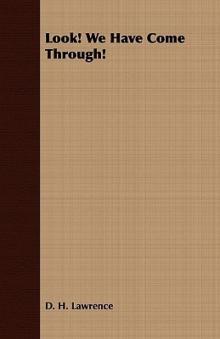 Look! We Have Come Through!
Look! We Have Come Through!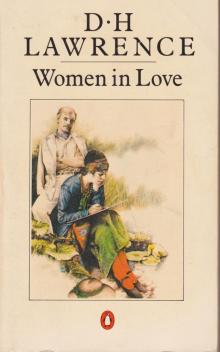 Women in Love
Women in Love The Ladybird
The Ladybird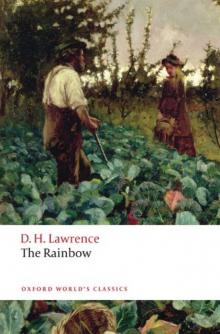 The Rainbow
The Rainbow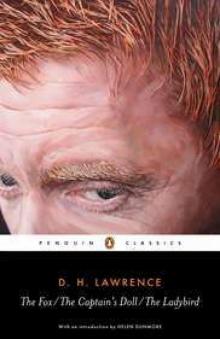 The Captain's Dol
The Captain's Dol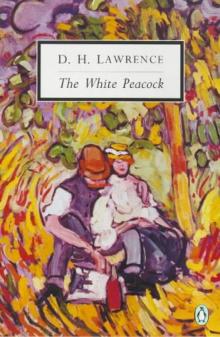 The White Peacock
The White Peacock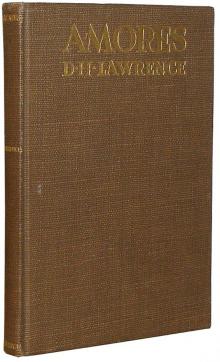 Amores
Amores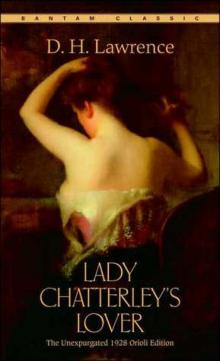 Lady Chatterley's Lover
Lady Chatterley's Lover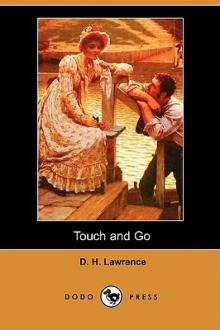 Touch and Go
Touch and Go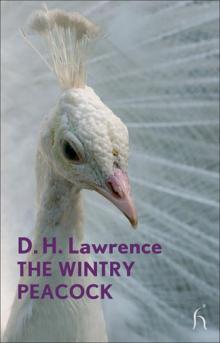 The Wintry Peacock
The Wintry Peacock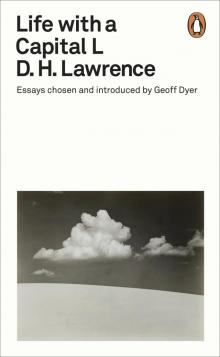 Life with a Capital L
Life with a Capital L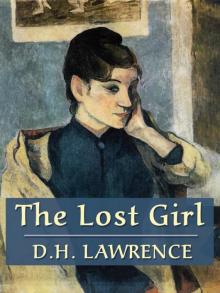 The Lost Girl
The Lost Girl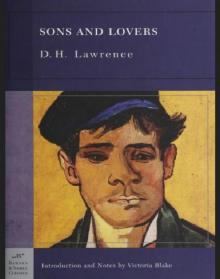 Sons and Lovers
Sons and Lovers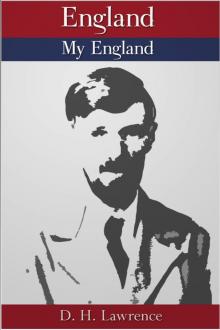 England, My England
England, My England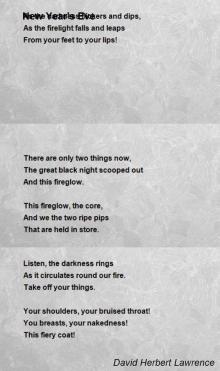 New Poems
New Poems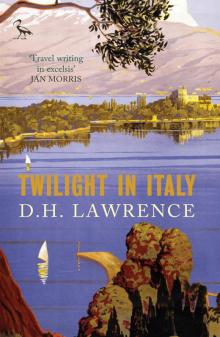 Twilight in Italy
Twilight in Italy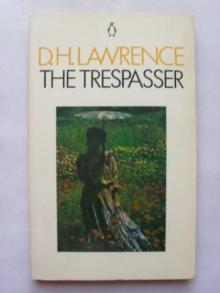 The Trespasser
The Trespasser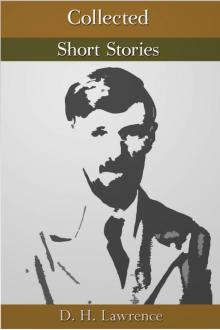 The Collected Short Stories
The Collected Short Stories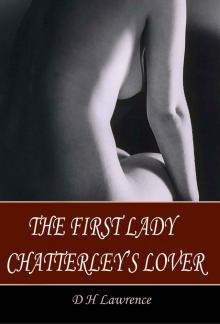 The First Lady Chatterley's Lover
The First Lady Chatterley's Lover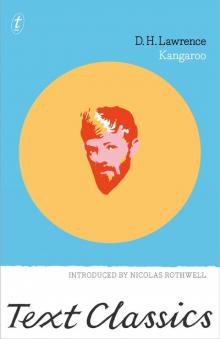 Kangaroo
Kangaroo Bay
Bay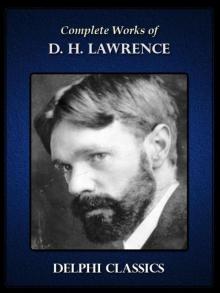 Complete Works of D.H. Lawrence
Complete Works of D.H. Lawrence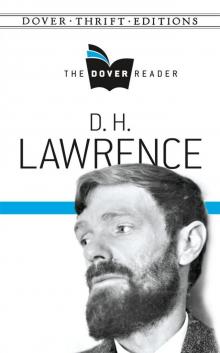 D H Lawrence- The Dover Reader
D H Lawrence- The Dover Reader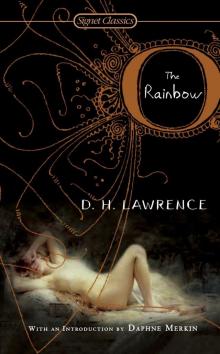 The Rainbow (100th Anniversary ed.)
The Rainbow (100th Anniversary ed.)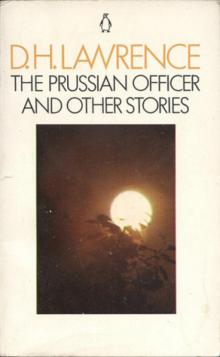 The Prussian Officer
The Prussian Officer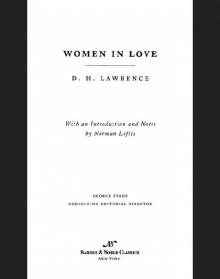 Women in Love (Barnes & Noble Classics Series)
Women in Love (Barnes & Noble Classics Series)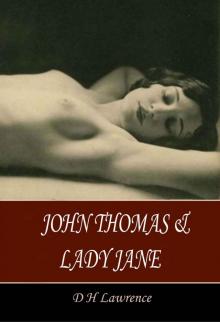 John Thomas and Lady Jane
John Thomas and Lady Jane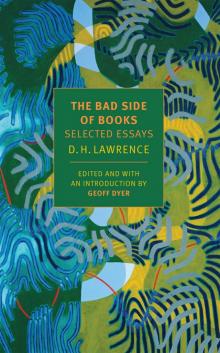 The Bad Side of Books
The Bad Side of Books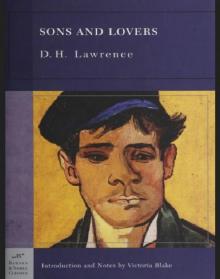 Sons and Lovers (Barnes & Noble Classics Series)
Sons and Lovers (Barnes & Noble Classics Series) Selected Stories
Selected Stories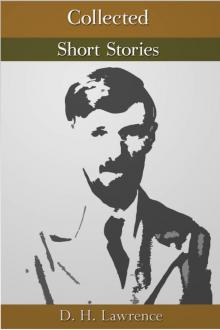 Collected Short Stories
Collected Short Stories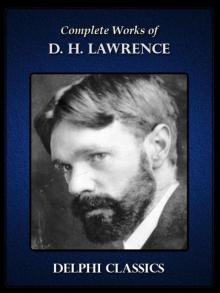 Complete Works of D.H. Lawrence (Illustrated)
Complete Works of D.H. Lawrence (Illustrated)